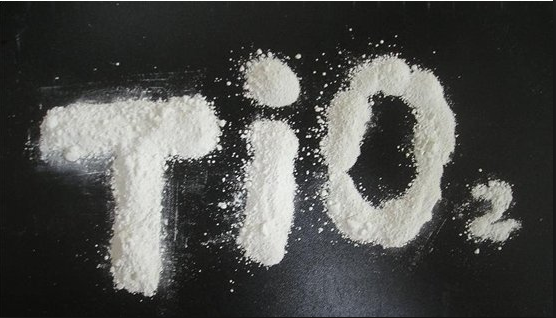The
demand for TiO2 is likely to continue rising, as global supply is tight. Asia
is seen as the main growth factor, looking at countries with growing living
standards which boost the demand for coating and packaging products. However,
increasing prices of Chinese TiO2 is decreasing the competitiveness, which
opens chances for exporters to invest in the promising Asian market.

The
year 2016 had shown a strong rebound of China’s TiO2 business in general,
according to market intelligence firm CCM. The market situation in 2015 was
quite depressed, while in 2016 huge price rises have benefited the financial
performance of China’s manufacturers. The overseas demand for Chinese TiO2 rose
up by about 17% in 2016, which enabled an export increase of the manufacturers
in China.
While
international supply of titanium dioxide is remaining tight, Asia’s tiO2 market
continues the booming trend it shows since the beginning of 2016. For example,
China leads the global demand for titanium dioxide in the construction sector,
with other Asian regions, such as India, Southeast Asia, and American regions,
namely Brazil and Mexico, not far behind.
The
three largest exporters of TiO2 in China 2016 have been Sichuan Lomon, Henan
Billions, and Gansu CNNC Huayuan. The leading Chinese TiO2 exporter in value
and quantity has been Sichuan Lomon, followed by Henan Billions and Gansu CNNC
Huayuan. However, Sichuan Lomon exported a value of titanium dioxide by USD100
million more than the second rank Henan Billions. Henan Billions, on the other
hand, exported over USD70 million more TiO2 than Gansu CNNC Huayuan.
Weak
demand for TiO2 in downstream markets had led manufacturers slowing down their
production, because the margin was not profitable. Hence, the global supply of
TiO2 even got more tightened during 2016.
China,
the most important TiO2 supplier in Asia, has seen especially tight supply, due
to the environmental inspections and measurement by the government, which
forces manufacturers to limit and cut the production in order to ensure
environmental protection. Additionally, the price of Chinese TiO2 increased not
only by tight supply, but also production costs, which have seen a rising trend
due to higher costs of raw materials like ilmenite as well as higher
transportation costs.
According
to market experts’ opinion, the global consumption of TiO2 will likely continue
to grow until the end of this decade. The growth in Asia will hereby play a
bigger role as the average growth worldwide.
The
most important role in future growth is seen for the large manufacturers, as
they are able to purchase enterprises in upstream markets and therefore enjoy
lower production costs. One example of this trend is seen in the purchase by Lomon Billions of
titanium concentrate processor Panzhihua Ruierxin, which will ensure the supply
of ilmenite and other raw materials with tight supply for China’s TiO2 giant.
The
popular opinion of players in the TiO2 market includes, that the price of TiO2
will continue to rise till early or mid of 2018 and then remain on a high
level, as demand and supply of TiO2 will balance out. The booming living
standards in Asian countries like China is causing the high demand for coatings
and packaging with drives TiO2 demand up. Hence, Asia will be the most
important market in the near future.
Demand
has been remained steady during the first quarter of 2017, which can be
explained by some pre-buying activity before the peak season ahead.
Additionally, there are some signs that the activity from the downstream
industries like paints and coatings as well as plastics is increasing
seasonally in the second quarter, which in exchange adds even more pressure
on the tight supply situation.
But
Chinese and Asian manufacturers are not the only players, which increase prices
of TiO2. Many big players have announced prices rises in 2017 already, which is
likely to continue throughout the year and also in the beginning of 2018.
In
fact, three of the four big western players in the TiO2 business, namely
Chemours, Huntsman and Cristal Global, have raised their prices for TiO2 on
March 1. Several China’s tiO2 manufacturers, among them the newly merged giant
Lomon Billions, already raised the quotations at the end of February, due to
the positive development of the market and the preparation for the coming peak
season of TiO2.
As
a result, European and American importers of TiO2 don’t see Asian products as
much competitive anymore, since the price boom, unbeneficial currency exchange
rates, and even higher freight costs are haunting the trade.
About CCM
CCM
is the leading market intelligence provider for China’s agriculture, chemicals,
food & ingredients and life science markets.
Do
you want to find out more about the TiO2 market in China? Try our Newsletters
and Industrial Reports or join our professional online platform today and get
insights in Reports, Newsletter, and Market Data at one place.
For
more trade information of TiO2, including Import and Export analysis as well as
Manufacturer to Buyer Tracking, contact our experts in trade analysis to get
your answers today.